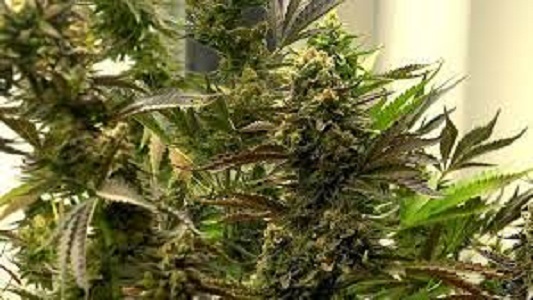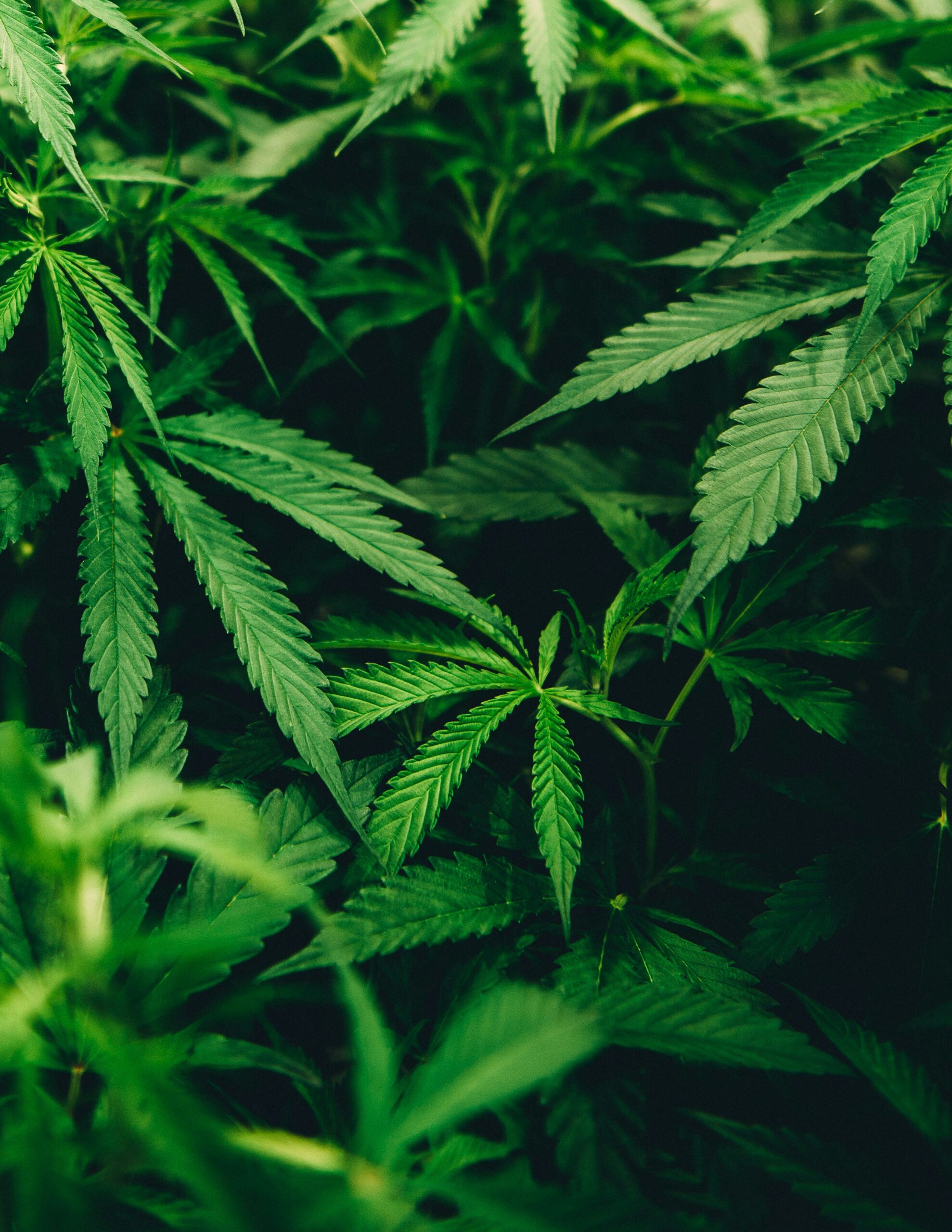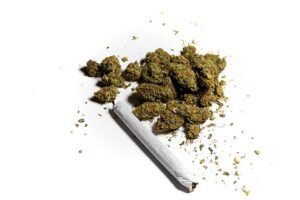Introduction to Marijuana in the Netherlands
Marijuana in the Netherlands has long been a topic of interest and intrigue, renowned for the country’s unique and liberal stance towards cannabis. Historically, the Netherlands has adopted a pragmatic approach, balancing control and tolerance, which has significantly shaped its reputation in the global context. This nuanced perspective emerged in the 1970s when the Dutch government implemented policies to distinguish between “soft” and “hard” drugs. Cannabis, categorized as a soft drug, was decriminalized for personal use, while hard drugs remained strictly prohibited.
The general attitude towards cannabis in Dutch society is characterized by a blend of tolerance and regulation. This pragmatic stance is rooted in the belief that separating the markets for soft and hard drugs would reduce the harm associated with drug use. As a result, the Netherlands became known for its “gedoogbeleid” or tolerance policy, which permits the sale and consumption of cannabis in licensed coffee shops under specific conditions. This policy aims to minimize the risks of drug use while maintaining public order and safety.
Today, the Dutch approach to marijuana remains a subject of debate and evolution. While some advocate for stricter regulations, others call for further liberalization. Nevertheless, the Netherlands continues to stand out as a pioneer in cannabis policy, offering a distinctive model that influences global discussions on drug law reform. Understanding the historical context and societal attitudes towards marijuana is crucial for comprehending the current legal framework and social norms surrounding its use in the Netherlands. This foundation paves the way for a deeper exploration of the intricacies of Dutch marijuana laws and their implications for residents and visitors alike.
The Legal Status of Marijuana in the Netherlands
The legal status of marijuana in the Netherlands is a nuanced topic, often misunderstood due to the country’s unique approach to drug policy. Unlike full legalization, the Netherlands operates under a system known as ‘gedoogbeleid,’ or the tolerance policy. This policy decriminalizes the possession and sale of small amounts of marijuana, allowing individuals to purchase and consume it in regulated environments, such as coffee shops. However, it is essential to note that marijuana remains technically illegal under Dutch law; the tolerance policy simply means that law enforcement does not prosecute specific activities under set conditions.
Under the tolerance policy, adults can legally purchase up to five grams of marijuana for personal use from licensed coffee shops. These establishments are also allowed to stock a maximum of 500 grams of marijuana at any given time. This system aims to separate the marijuana market from the hard drug market, reducing harm and illegal drug trafficking. It is crucial to recognize that while personal use and small-scale sales are tolerated, large-scale production and distribution remain illegal and subject to strict penalties.
Recent years have seen discussions around reforming marijuana laws in the Netherlands. In 2017, the Dutch government implemented an experimental program to regulate marijuana cultivation legally. This pilot program involves a limited number of municipalities where licensed growers produce marijuana, supplying it directly to coffee shops. The objective is to assess whether a regulated supply chain can effectively reduce criminal activity and ensure product quality and safety.
Despite the tolerance policy, marijuana use is subject to specific regulations and restrictions. For instance, it is illegal to smoke marijuana in public spaces or around schools, and driving under the influence of marijuana is strictly prohibited. Municipalities also have the authority to implement additional regulations, such as establishing no-tolerance zones or limiting the number of coffee shops in their jurisdiction.
In summary, while the Netherlands’ approach to marijuana is often perceived as permissive, it is a carefully balanced system designed to minimize harm and regulate use. The ongoing pilot program and potential future reforms indicate a continued commitment to evaluating and refining this unique policy.
Buying Cannabis in the Netherlands: Coffeeshops Explained
The Netherlands is renowned for its unique approach to cannabis regulation, prominently featuring the famous Dutch coffeeshops. These establishments are legally permitted to sell small quantities of cannabis products for personal use. The regulatory framework governing coffeeshops is quite extensive, ensuring that these businesses operate within a clearly defined legal boundary.
To begin with, coffeeshops must obtain a license from the local municipality to operate legally. This licensing process includes several stringent criteria, such as not selling alcohol, adhering to age restrictions, and ensuring that no more than five grams of cannabis are sold to an individual per transaction. Additionally, coffeeshops are prohibited from advertising cannabis products, which helps to maintain a low profile and reduce the risk of encouraging excessive use.
The operational rules for coffeeshops also include mandatory compliance with the “no hard drugs” policy, which strictly prohibits the sale of substances other than cannabis. Moreover, coffeeshops must be located at a certain distance from schools to minimize exposure to minors. Non-compliance with these regulations can result in hefty fines or even closure of the establishment.
When it comes to the types of products available, customers can expect a diverse selection ranging from traditional cannabis flowers to edibles, hash, and pre-rolled joints. Each product is usually accompanied by information regarding its potency and effects, allowing consumers to make informed choices. The quality and consistency of cannabis sold in coffeeshops are generally high, as these establishments aim to maintain a reputable standard.
The experience of buying cannabis in a Dutch coffeeshop is relatively straightforward. Upon entering, customers typically need to present valid identification to prove they are at least 18 years old. The atmosphere inside a coffeeshop is often relaxed and sociable, with many offering comfortable seating areas where patrons can consume their purchases. However, it is important to note that smoking cannabis in public places outside of these designated areas is not permitted and could result in a fine.
In summary, Dutch coffeeshops operate under a well-defined regulatory framework that ensures safe and responsible cannabis consumption. While the experience of purchasing cannabis in these establishments is designed to be pleasant and user-friendly, adherence to the legal guidelines is crucial for both customers and business owners alike.
Consumption Rules and Public Use Regulations
The Netherlands is internationally renowned for its progressive approach to cannabis. However, this does not imply unrestricted freedom in the consumption of marijuana. Understanding the boundaries of its use is crucial for both residents and visitors navigating the Dutch landscape. Primarily, the consumption of cannabis is permitted in designated areas such as licensed coffeeshops. These establishments operate under specific guidelines that ensure the controlled and responsible use of marijuana.
Public consumption of cannabis, on the other hand, is heavily regulated. Smoking marijuana in public spaces, including streets, parks, and other communal areas, is generally prohibited. This restriction aims to balance the country’s liberal stance on cannabis with public order and safety considerations. Local municipalities may enforce these regulations with varying degrees of strictness. For instance, Amsterdam, one of the most famous cities associated with cannabis culture, has specific zones where public consumption is more stringently controlled, particularly in areas frequented by tourists.
Private use of cannabis within one’s own home is legally tolerated, provided it does not cause public disturbance. This reflects the Dutch legal principle of “gedoogbeleid” or tolerance policy, which allows for limited personal use under regulated circumstances. However, cultivation of marijuana plants at home is limited to a small number of plants, typically five or fewer, and solely for personal use. Commercial cultivation remains illegal and is subject to substantial penalties.
Violating these consumption regulations can result in various penalties, ranging from fines to more severe legal consequences for repeated or significant infractions. For instance, public consumption may result in a fine, while possession of large quantities or illegal cultivation can lead to criminal charges. It is advisable to familiarize oneself with local regulations to avoid inadvertent breaches of the law.
Staying compliant with the Netherlands’ cannabis laws is straightforward when adhering to the established guidelines. Consumers should limit their use to private settings or licensed coffeeshops and be mindful of local public consumption rules. By following these guidelines, individuals can enjoy cannabis responsibly and legally within the Dutch framework.
Cultivation Laws and Home Growing
The cultivation of marijuana in the Netherlands is governed by a nuanced legal framework. While the sale and possession of small amounts of cannabis are tolerated under the Dutch policy of gedoogbeleid, the cultivation laws are more stringent. Individuals are permitted to grow up to five cannabis plants for personal use without facing criminal prosecution. However, this allowance comes with specific conditions that must be adhered to strictly.
Firstly, the cultivation must be non-commercial; the plants should be grown for personal use only. Secondly, the plants must be cultivated in a manner that is not visible to the public, meaning they should be grown indoors or in a private garden out of sight. Additionally, the use of professional equipment such as grow lamps or hydroponic systems remains illegal and could lead to prosecution.
It’s crucial to note that while the possession of up to five plants is not actively prosecuted, law enforcement retains the authority to confiscate these plants if they are discovered. This approach aims to maintain a balance between personal freedom and public order. Furthermore, any cultivation that goes beyond five plants or involves commercial intent can result in significant legal consequences, including fines and imprisonment.
Recent legal developments have introduced pilot programs aimed at regulating the entire supply chain of cannabis, from cultivation to sale. The “Wietexperiment” or “weed experiment” is a government-sanctioned project that permits selected municipalities to regulate and oversee the production and distribution of cannabis. This initiative seeks to address the inconsistencies in the current legal framework and to reduce the involvement of criminal organizations in the cannabis market.
Overall, while home growing is tolerated under specific conditions, it remains a legally sensitive area. Individuals interested in cultivating cannabis at home should stay informed about the evolving legal landscape to ensure compliance with Dutch laws.
Tourism and Marijuana: What Visitors Need to Know
For many tourists, the Netherlands is synonymous with its liberal stance on marijuana. While the country’s approach to cannabis is indeed progressive, it is essential for visitors to understand the legal nuances to ensure a safe and enjoyable experience. The Dutch policy on marijuana is unique, characterized by a pragmatic approach that balances decriminalization with strict regulations.
Firstly, tourists should be aware that marijuana remains technically illegal in the Netherlands, but possession of small amounts for personal use is decriminalized. The sale of cannabis is tolerated in licensed coffee shops, where individuals over 18 can purchase up to five grams per day. These establishments are subject to strict regulations, including a prohibition on advertising and limits on the amount of cannabis stock they can hold.
Non-residents should note that while Amsterdam’s coffee shops are open to tourists, some municipalities have restricted access to residents only. It is advisable to check local regulations before planning a visit to a specific coffee shop. Furthermore, consuming marijuana in public spaces is generally frowned upon and can result in fines. Tourists are encouraged to enjoy cannabis within the confines of coffee shops or private accommodations.
When purchasing cannabis, tourists should always verify that they are buying from a legitimate coffee shop. Unregulated street vendors may offer lower prices but pose significant risks, including potential legal issues and exposure to unsafe products. Visitors should also avoid carrying cannabis across international borders, as this can result in severe legal consequences.
Responsible consumption is paramount. The potency of Dutch cannabis can be much higher than what tourists might be accustomed to. Starting with small amounts and pacing oneself can help avoid adverse effects. It is also important to stay hydrated and avoid mixing cannabis with alcohol or other substances.
By understanding these legal nuances and adhering to local regulations, tourists can safely and responsibly enjoy the cannabis culture that the Netherlands has to offer. This approach not only enhances personal safety but also respects the local customs and laws, ensuring a positive experience for all.
Medical Marijuana in the Netherlands
The Netherlands is well-known for its progressive approach to cannabis, and this extends to its medical marijuana program, which is among the most comprehensive in the world. Medical marijuana is prescribed under strict conditions for patients suffering from specific ailments, such as chronic pain, multiple sclerosis, chemotherapy-induced nausea, and certain neurological and psychiatric disorders. The primary aim is to alleviate symptoms and improve the quality of life for those who have not responded well to conventional treatments.
Patients who are prescribed medical marijuana can choose from a variety of products, including dried flowers, oils, and capsules. These products are produced under stringent quality control measures to ensure their safety and efficacy. The Dutch Office of Medicinal Cannabis (OMC) oversees the regulation and distribution of medical cannabis, ensuring that patients receive standardized products that comply with pharmaceutical standards.
To obtain a prescription for medical marijuana in the Netherlands, patients must first consult with their healthcare provider. If the physician determines that medical cannabis could be beneficial, they will issue a prescription which can then be filled at a licensed pharmacy. The process is designed to be straightforward but requires medical justification to ensure that cannabis is used appropriately and safely.
It is important to note that there are significant differences between medical and recreational cannabis laws in the Netherlands. While recreational use is tolerated under the “gedoogbeleid” or tolerance policy, it is not legally sanctioned. Medical cannabis, on the other hand, is fully legalized and regulated, providing a clear legal framework for its use.
Recent advancements in medical marijuana research have influenced policy changes, allowing for broader access and new treatment options. Studies demonstrating the therapeutic benefits of cannabis have prompted the Dutch government to continually refine its medical marijuana program, ensuring that it remains at the forefront of global cannabis policy.
The Future of Marijuana Laws in the Netherlands
As the global perspective on marijuana continues to evolve, the Netherlands faces its own set of debates and potential legal changes regarding cannabis. One of the central discussions involves the regulation of the supply chain, which remains a contentious issue. While the sale of marijuana in licensed coffee shops is tolerated, the production and wholesale supply are still illegal. This paradox has led to calls for a more coherent and regulated framework, which could see the entire supply chain legalized and monitored by the state.
Proposals for legal changes are gaining traction, fueled by the success of pilot programs aimed at exploring regulated cannabis cultivation. These trials are designed to assess the impacts of a regulated market on public health, crime rates, and economic benefits. Early indicators suggest that such a system could reduce black market activities and provide a safer, more controlled product for consumers. As these pilot programs progress, they may set the stage for broader legislative reforms in the near future.
International trends are also playing a significant role in shaping the future of marijuana laws in the Netherlands. With countries like Canada and several U.S. states fully legalizing cannabis, there is growing pressure on the Dutch government to reconsider its own policies. The European Union’s stance on drug policy, which emphasizes harm reduction and public health, further influences national debates. As more countries move towards legalization and regulation, the Netherlands may find itself adapting to remain competitive and relevant in the global cannabis market.
For residents and visitors, potential changes in marijuana laws could mean greater clarity and safety when purchasing cannabis products. A fully regulated market might enhance consumer confidence and quality control, leading to better overall experiences. For the broader cannabis industry, these changes could stimulate economic growth, attract investment, and foster innovation. However, the road to comprehensive reform is complex, requiring careful consideration of social, legal, and economic implications.








